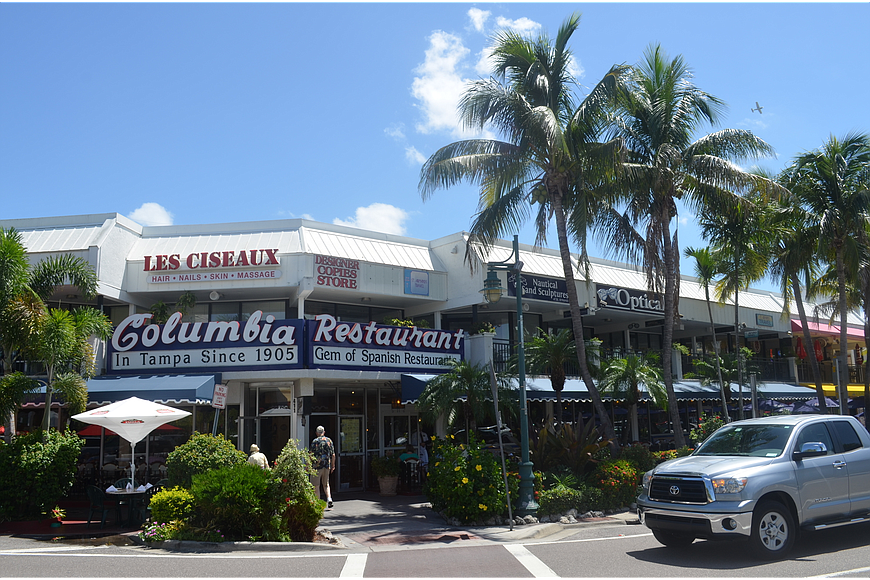- November 13, 2025
-
-
Loading

Loading

Before the end of the year, the St. Armands Circle shopping district may have a new amenity: speed tables.
At a Sept. 6 meeting with a representative from the Florida Department of Transportation, the St. Armands Business Improvement District recommended moving forward with a test of the traffic-calming devices. The state is considering installing four speed tables in intersections around the Circle.
The speed tables would be temporary installations, designed so FDOT officials can study the effect on traffic in the area. The goal is to prohibit speeding, specifically entering and leaving the Circle on the way to Longboat Key and mainland Sarasota, according to FDOT District Traffic Operations Engineer Keith Slater.
The BID and FDOT officials discussed which intersections along John Ringling Boulevard and North Boulevard of the Presidents made the most sense to effectively slow drivers. FDOT officials said the precise location of the speed tables are still subject to further review.
If the speed tables prove effective in slowing traffic, the state would consider building raised intersections and crosswalks in the St. Armands area in the future.
Slater said speeding is a bigger issue outside of peak tourist season, when traffic congestion generally limits motorists’ ability to drive faster than the speed limit. Although he initially recommended installing the speed tables after the upcoming season, St. Armands stakeholders advocated for moving forward with the project as quickly as possible.
Diana Corrigan, executive director of the St. Armands Circle Association, cited two incidents in which a vehicle hit a pedestrian near the area. She said those collisions happened in November and December — reason not to wait before installing the temporary speed tables. Corrigan also said drivers are tempted to speed in-season when there’s a break in the congestion once they’re exiting the Circle.
“During peak season, they’re very frustrated because they’ve been sitting in traffic,” Corrigan said. “I don’t think it’s a bad idea to have it there for peak season.”
Slater said the array of black-and-yellow rubber speed tables cost between $45,000 and $50,000, which FDOT would fund. BID Chairman Gavin Meshad questioned committing that money to a temporary solution rather than a permanent one, but Slater said it could take years before the state was able to install raised crosswalks around the Circle. The temporary speed tables represented a more expedient opportunity to test the efficacy of such a project.
“They’re not the most pleasing to look at, but they’ll get the job done,” Slater said.
Slater said FDOT still needed to coordinate the installation of the speed tables. If they are put in place before the end of the year, however, he said the agency would likely study the effects before and after season before writing a report detailing its findings.
The BID was anxious to move forward toward a permanent solution for addressing speeding issues around the Circle. However, even if the speed tables prove effective, Slater said there were still major logistical questions that must be addressed before a long-term project can proceed.
“Where’s that money going to come from?” Slater asked. “Which year is it going to be in? Who’s going to design it? Those are all things we haven’t even touched on yet.”